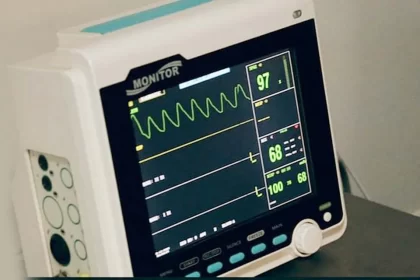Workplace injuries can not only be physically devastating but also financially burdensome if not handled correctly. In Hayward, as in other areas, it is vitally important to understand your rights and responsibilities following such an incident. From immediate reporting and documentation to seeking medical attention and legal representation, these steps can greatly influence your potential workers’ compensation benefits. This discussion aims to shed light on these essential steps, providing an extensive guide on how to effectively secure your rights in the aftermath of a workplace injury. What further aspects should workers be aware of?
Understanding Workplace Injury Rights
While most employees are aware of the basic premise of worker’s compensation, understanding your specific rights in the event of a workplace injury is essential. As an employee, you are entitled to a safe and healthy work environment. Workplace safety is not a privilege; it is a right. If these standards are not met, and you suffer harm as a result, you are entitled to certain benefits and protections.
Your employee rights, in the context of a workplace injury, cover medical bills, lost wages, and rehabilitation costs. It is important that you approach your employer or supervisor immediately after any incident to guarantee all necessary procedures are followed, and your rights are protected. Furthermore, you cannot be terminated or discriminated against for claiming or attempting to claim worker’s compensation benefits.
Additionally, you have the right to refuse to work in conditions that you believe are dangerous, without fear of retaliation. If you feel your rights are being violated, it’s important to seek legal advice promptly. By being informed about your rights and taking prompt action, you can guarantee your interests are protected.
Reporting Your Injury Immediately
Having a clear understanding of your workplace injury rights sets the foundation for the next important step: promptly reporting your injury. Timely injury reporting is not just a procedural requirement; it is vital in protecting your legal rights and facilitating your claim process.
When an injury occurs, the immediate reaction might be panic or confusion. However, it is essential to maintain composure and inform your supervisor or manager as soon as possible. This prompt action signifies responsible workplace communication and guarantees that your employer is aware of the situation.
It’s important to remember that delaying injury reporting can lead to complications. These include skepticism about the injury’s legitimacy or disputes about its connection to the job. By immediately reporting, you establish a clear, indisputable link between your workplace and the injury.
Moreover, in some jurisdictions, including Hayward, there are specific timeframes within which workplace injuries must be reported. Failure to adhere to these timelines can result in losing your right to claim workers’ compensation benefits.
Documenting the Incident Details
Beyond promptly reporting your injury, it is equally essential to meticulously document the incident’s details. An accurate account of the event can greatly influence the outcome of your compensation claim. This includes creating a detailed and precise incident report, which serves as an important piece of evidence.
An incident report should include the date, time, location of the injury, and the circumstances leading up to the event. Describe any unsafe conditions or unusual events preceding the injury. Include a thorough account of the incident, detailing how the injury occurred. Remember, clarity is key. Your report should be easy to understand, yet thorough enough to capture the essence of the incident.
In addition to your incident report, witness statements can be highly valuable. If there were any observers at the time of the incident, their accounts can corroborate your version of events and lend credibility to your claim. Be sure to record their statements as soon as possible while the incident is still fresh in their memory.
Seeking Immediate Medical Attention
After documenting the incident, your next step should be seeking immediate medical attention. This is essential for not only ensuring your health and safety but also for establishing a medical record of your injury, which can serve as compelling evidence in your case. We will explore the importance of prompt care and how to meticulously document your medical treatments in this section.
Importance of Prompt Care
Undeniably, seeking immediate medical attention after a workplace injury is of utmost importance. This immediate step not only guarantees the mitigation of health risks but also plays an essential role in any subsequent legal proceedings that may follow.
Although preventive measures and workplace safety protocols aim to minimize the incidence of injuries, they cannot entirely eliminate the risk. In the unfortunate event of a workplace injury, prompt care becomes a vital factor that can considerably influence the severity and long-term impact of the injury.
Receiving immediate medical attention helps in the early detection and treatment of injuries, which can prevent complications and accelerate recovery. Furthermore, it serves as an important link in establishing the cause and effect relationship between the workplace incident and the injury, a factor that is often critical in workers’ compensation claims.
Prompt care is not merely a reactive measure but a responsibility towards your own well-being and an essential component of workplace safety. By understanding its importance, you take an active role in protecting your rights, health, and future, laying the groundwork for a strong legal defense, if required.
Documenting Medical Treatments
A notable aspect of protecting your rights following a workplace injury is accurately documenting all medical treatments received. This documentation serves as a vital piece of evidence in any subsequent legal proceedings or insurance claims, underscoring the severity of your injury and the extent of the care required to manage it.
It’s essential to record treatment timelines detailing when and where you received medical attention, the professionals who attended to you, the diagnosis made, and the treatment rendered. Include all medications prescribed and any therapeutic procedures undertaken. This thorough document should not only focus on the immediate treatment received post-injury but should also include follow-up appointments.
These follow-up appointments are important as they often reveal the long-term impact of your injury, which might not be immediately apparent. They provide insights into any necessitated ongoing treatment, rehabilitation needs, or permanent disabilities, greatly affecting your claim’s outcome.
Notifying Your Trade Union
One essential step towards safeguarding your rights following a workplace injury is promptly notifying your trade union. Your trade union serves a vital role in protecting your interests, providing you with the support you need in documenting the incident and securing legal representation. This proactive approach will guarantee that your rights are prioritized and upheld during this difficult time.
Role of Trade Union
In the aftermath of a workplace injury, your trade union can play a pivotal role in safeguarding your rights. The trade union’s primary function is to represent its members and guarantee their rights are not violated. This includes situations where an employee has suffered an injury at work. Immediate union support can make a significant difference to the outcome of your case.
Trade unions possess a wealth of experience and knowledge in dealing with workplace injuries. They can guide you through the often complex procedures that follow such incidents, providing you with expert advice and support when you need it most. The collective power of a trade union can also be instrumental in negotiating with your employer on your behalf.
Through collective bargaining, your union can negotiate for adequate compensation, workplace adjustments, or other necessary support measures. These negotiations are often more successful when conducted by a union representative due to their experience and understanding of employment law and workers’ rights.
Documenting the Incident
After a workplace injury, timely and accurate documentation of the incident is essential. This vital step guarantees that your rights are safeguarded and can greatly influence the outcome of any subsequent proceedings.
The first thing to do is to gather incident witness accounts. The perspectives of those who saw the accident can provide valuable insights into how the event occurred. They can corroborate your version of events and provide a fuller picture of the circumstances leading to the injury. Be sure to record these statements as soon as possible, while the details are still fresh in the witnesses’ minds.
Photographic evidence also plays a pivotal role in documenting the incident. This can include pictures of the accident scene, your injuries, and any safety hazards or violations that may have contributed to the accident. Photos can serve as undeniable proof of the conditions at the time of the incident.
Securing Legal Representation
Building on the foundation of carefully documented evidence, it’s imperative to secure legal representation and inform your trade union of the incident. Expert legal representation can dramatically increase the chances of securing fair compensation. When choosing a lawyer, focus on their workplace injury experience, success rate, and legal fees.
An initial attorney consultation provides a platform to discuss your case’s specifics, evaluate potential outcomes, and understand the proposed strategy for handling your case. It is also an opportunity to gauge comfortability with the attorney, feeling assured they will advocate fiercely on your behalf.
Informing your trade union is equally essential. As a collective body advocating for employee rights, your union can offer invaluable support. They may have additional resources or legal advice to aid your case, and their involvement can add weight to your claim.
Maintaining Records of Expenses
The cornerstone of a sound financial recovery strategy following a workplace injury is meticulous record-keeping. A thorough, well-organized account of expenses incurred due to the injury can greatly influence the outcome of your case and guarantee that you receive the compensation you deserve.
Expense tracking is a fundamental part of this process. It is essential to record every cost associated with your injury, from medical bills and prescription costs to transportation expenses for medical appointments. Even the minor costs, like parking fees, should be included. These records will serve as financial documentation that provides a clear and accurate picture of your financial burden.
Keeping all original receipts, invoices, and statements is imperative. If possible, it can be helpful to create digital copies as a backup. You should also maintain a log of any work missed due to your injury and the corresponding loss of income.
An organized approach to financial record-keeping can make a notable difference when it comes to settling your claim. It not only substantiates your financial claims but also provides a tangible narrative of your injury’s impact on your life. This can be a powerful tool in securing the compensation that rightfully belongs to you.
Contacting a Workers’ Compensation Attorney
Securing representation from a skilled workers’ compensation attorney can be a pivotal decision in your journey towards obtaining rightful compensation. These legal professionals are experts in the field, with a deep understanding of the intricacies of workers’ compensation law and the rights of injured employees.
It is essential to initiate an attorney consultation as soon as possible after a workplace injury. This timely engagement allows for a thorough evaluation of your case, helping you to understand the full extent of your rights under the law. By consulting legal experts for personal injury in Hayward, you benefit from advice that draws on extensive experience, ensuring that every aspect of your case is meticulously considered.
An experienced attorney will also guide you through the often complex and challenging legal processes. Their expert advice can help you navigate the system, avoiding potential pitfalls and maximizing your chances of a successful claim.
Pursuing a Workers’ Compensation Claim
After establishing a solid foundation with a workers’ compensation attorney, your next step involves actively advancing your claim. The claim process can be intimidating, but with the right guidance, you can navigate it successfully to protect your rights.
The initial phase of the claim process requires detailed documentation of your injury and its impact on your ability to work. This includes medical records, eyewitness accounts, and any correspondence with your employer regarding the injury. Your attorney will assist in compiling this evidence and submitting the necessary forms to initiate your claim.
Next, it is essential to understand your benefits eligibility. Workers’ compensation benefits can cover various expenses, including medical care, temporary or permanent disability benefits, and vocational rehabilitation. The extent of your benefits depends on your injury’s severity and its long-term effects on your work capacity.
The claim process is often met with resistance from employers or insurance companies, who may dispute your eligibility or the claim’s validity. This is where your attorney’s experience becomes invaluable, as they can counter these challenges and advocate for your rights. Remember, pursuing a workers’ compensation claim is not just about getting compensation; it’s about asserting your rights and ensuring you receive the support you deserve.
Frequently Asked Questions
Can I Sue My Employer if Im Injured on the Job in Hayward?
Yes, in Hayward, if your injury results from workplace negligence, you may sue your employer. It’s critical to understand your employee rights and seek legal counsel to effectively navigate this complex process.
What if My Injury Was Caused by a Co-Worker, Not an Unsafe Condition?
If your injury was caused by a co-worker, you may have a negligence claim. Co-worker liability comes into play when their reckless or intentional actions directly result in your harm, granting you grounds for compensation.
Can I Be Fired for Filing a Workers Compensation Claim?
In California, termination due to filing a workers’ compensation claim is illegal and considered retaliation. If you have concerns about retaliation during the claim process, consult with an employment law attorney for guidance and protection.
What if I Dont Feel Injured Immediately After the Accident, but Later On?
Delayed symptoms after a workplace accident are common. It’s essential to document any changes in your health and seek medical attention immediately. This will safeguard your rights should a late-onset injury become apparent.
Are Psychological Injuries Covered Under Workers Compensation in Hayward?
Yes, psychological injuries are generally covered under workers’ compensation in Hayward. It’s important to obtain psychological assessments, as they can provide evidence of emotional distress caused by a workplace incident.










